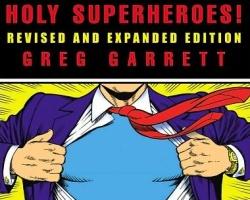What can superheroes in comics and movies teach us about our own lives and the decisions we make? Here are three.
Lesson One: We need heroes; we believe in saviors.
Throughout human history, as Joseph Campbell showed us, cultures have told stories of heroes who brought hope, solved problems, created meaning. Heroes can be in stories we create, such as Superman and Spider-Man, or they can be real. As comics pointed out after 9/11, our real-life heroes—firefighters, police officers, soldiers, emergency medical techs—are every bit as inspiring as those heroes we make up. Maybe more so. We look to our heroes—whether real, literary or heroes of faith—to show us how to live, how to ultimately be heroes ourselves.
Lesson Two: We believe evil exists, and while it sometimes appeals to us, we understand that it needs to be conquered.
Some of our favorite comics characters—the Joker, the Red Skull, Magneto, Lex Luthor—are people we wouldn't hang with in everyday life. Their anarchy and power exerts an attraction, but ultimately we side with the good guys. We believe that what the world needs now is—if not love—at least to diminish the suffering and injustice we see all around us. If we didn't believe that, deep down, these stories of good winning out over evil.
Lesson Three: We all have a responsibility to take action to make things better.
Superhero comics depict momentous battles, but Superman doesn't take over the world in an attempt to fix it, and the X-Men don't move into the Oval Office at the end of X-2. People of faith believe in a higher power, but most of us believe it's a mistake to think those powers are going to shape things without any work on our part. As issues of various Superman comics suggest, Superman's example of justice and compassion leading others to work in the world may be a more important legacy than all the times he saved the planet, and so it is with us. Jews must act with justice; Muslims must submit to the leadings of God in their everyday lives; Buddhists must exercise compassion as Buddha taught; Christians must be the healing hands of Christ in the world.
Comics get a lot of things wrong. All men aren't built like Mr. Universe, all women like pinup models. Most people look just plain ridiculous in skintight leotards. If someone punches you in the head, it hurts. Both of you. And so on. But this they get right, and fortunately, it's the important stuff: We look for heroes as examples of how we're supposed to live, and we can take that example into the ongoing struggle to redeem this world. Maybe we can't, as we said earlier, fly, bend bars, change the course of mighty rivers.
However, we can change ourselves: We can become people of peace, love and compassion. We can do what is right instead of what is expedient. We can question the way things have always been done. We can vote and donate, clean up, give away, speak out, act up. We can try to make a community, a nation, a world we can be proud of.
It'll take bravery. It'll take wisdom. It'll take all the qualities old Shazam handed out to Captain Marvel. Most of us don't have a cape hanging in the closet, but since when do heroes turn back from a battle worth joining?
This article is adapted with permission from his book, Holy Superheroes! Exploring the Sacred in Comics, Graphic Novels and Film (WJK, 2008, & TheThoughtfulChristian.com).




